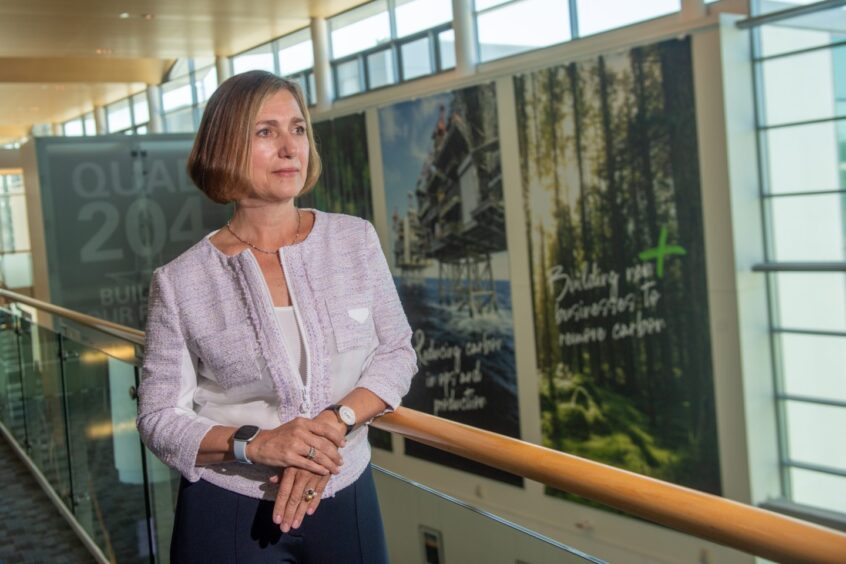
Industry and government need to be on the “same page” in order to support jobs and the transition to cleaner energy in the North Sea or risk “losing out” to other energy producing areas of the world, the BP (LON: BP) vice president Doris Reiter has warned.
In a significant intervention ahead of the UK government’s budget in October, BP’s first
female to lead the North Sea business said the UK needs a fiscal and regulatory environment that enables offshore workers to “lead the world in the industries of the future”.
In her speech to an audience in Aberdeen that will also host the UK energy minister Michael Shanks, she welcomed previous Labour government statements that oil and gas in the North Sea would be a “key component of the UK energy landscape for decades to come”, adding there is a “but” as this vision relies crucially on BP investment in the UK.
“But – and there is a but – we need a fiscal and regulatory environment that enables that,” she said.
“At the end of the day, BP’s North Sea business needs to stand on its own two feet in our global portfolio.
“But in a scenario where my business becomes uncompetitive against investment options elsewhere in the world, and this is likely true for the rest of the industry – our basin will lose out.
“That means opportunities missed by my colleagues in BP, by my fellow North Sea operators and the supply chain – many of whom are here in the room today.”
Monumental 60 years
Reiter delivered a key note speech at the Offshore Energies UK event on a “monumental” occasion, marking 60 years to the day that the energy giant first received its licence to explore for oil and gas in the North Sea from the then Ministry of Power.
The permit was dated September 17, 1964 and was numbered “P001″ clearing the way for BP to “bore for and get petroleum from the seabed and subsoil under the sea”.
The company has plans to invest billions in North Sea oil and gas projects such as the giant Clair field in the West of Shetland and Schiehallion, along with the Murlach, Kate and Mungo fields near the BP-operated ETAP hub in the Central North Sea.
Reiter also outlined BP’s plans to invest in major clean energy and decarbonisation projects including the 2GW Morven offshore wind project with ENBW and the Net Zero Teeside carbon capture and storage (CCS) scheme. BP is also partnering with Aberdeen City Council to develop a green hydrogen hub in the city.
She also highlighted the potential impact on jobs by mentioning three generations of one family, the Pitcaithlys, who have all worked for BP.
This included 23-year old apprentice Lara and her father Graeme, who both work on BP’s flagship Clair project, and grandfather John, who came up through the BP ranks in the North Sea working on the Forties Alpha platform.
However, she said a future in the industry for “Lara and her peers… can only happen if this industry continues to prosper, under the right conditions”.
She referenced a recent interview she did in Energy Voice as well as the latest report from analysts Wood Mackenzie with “another worrying headline”, which said the UK North Sea would be “fatally wounded in less than five years” if the UK persisted in its currently plans including the removal of investment allowances.
She said: “Ours is a complex industry and if I’m honest we’ve not always been great at articulating those complexities in a compelling way or fan-faring our successes and triumphs.
“Or explaining and reminding how our industry contributes to people’s day to day lives through, heat, light, mobility, textiles, pharmaceuticals and even the lubricants and greases required by renewable energy equipment and so much more.
“But one thing we have done is repeatedly face up to challenge. We’ve pioneered. We’ve pivoted. We’ve evolved. And we’ve never rested on our laurels.
“And I think I can speak for many of us in the room when I say we want to keep doing that.
“We know there are opportunities for our people and our projects to keep supplying the energy the world needs today – the country needs today – while progressing together through the energy transition.
“But we also know this can only happen if the investment conditions around us allow. I cannot stress this point enough.
“So . . . if I could end by injecting a call to action to everyone in the room. Share your own stories like I have today. And let’s make sure the book about the North Sea has many good chapters ahead and doesn’t finish on a cliffhanger.”
Recommended for you


 © Supplied by Primat Recruitment
© Supplied by Primat Recruitment